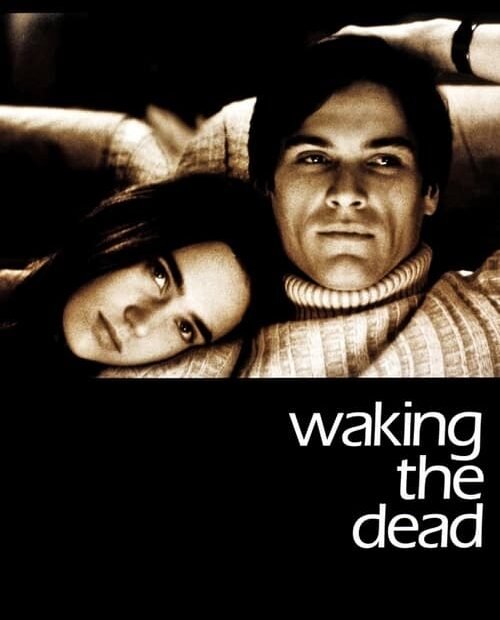Waking the Dead: A Love Story That Just Won’t Stay Dead
Picture this: it’s the rebellious year of 1972, and our dashing Coast Guard officer, Fielding Pierce (played by the ever-dreamy Billy Crudup), has a penchant for romance and a serious case of ’70s angst. Enter Sarah Williams (the luminous Jennifer Connelly), a spirited activist who believes in challenging the system, which is just a fancy way of saying she’s got a serious knack for getting into trouble. Spoiler alert: she does get into trouble, and it’s explosive—literally!
So, there’s our love story brewing amidst protests and political turmoil, and just when you think Fielding is about to sweep Sarah off her feet, boom! Terrorists decide to crash the party, and Sarah goes out with a bang. Not the kind of bang you want in a romantic film, mind you. Fast forward a decade, and Fielding is still nursing that heartbreak like a fine wine gone sour. He starts having visions of Sarah, which is either a sign of true love or a severe case of unresolved issues. Spoiler: it’s both.
As Fielding spirals deeper into his déjà vu delusions, he begins to suspect that Sarah might just be alive and kicking somewhere, possibly sipping on a piña colada while plotting her next act of rebellion. Because, naturally, when your girlfriend dies in a terrorist explosion, the logical next step is to start seeing her ghost and play detective. Who needs therapy when you can have supernatural hallucinations?
The film takes a delightful nosedive into the murky waters of political intrigue, as Fielding’s obsession leads him on a wild goose chase through the underbelly of a conspiracy that would make even the most seasoned detective raise an eyebrow. He’s convinced that Sarah’s death was not just a tragic accident but a calculated move in a greater game of chess—because why wouldn’t a young man in love jump to the most convoluted conclusion possible?
As the plot thickens, we’re treated to a series of increasingly bizarre encounters, including a few awkward moments where Fielding talks to his imaginary girlfriend in public places. Nothing screams “I’m over my dead girlfriend” like having a heart-to-heart with her ghost in a crowded café. It’s all very charming until you realize he’s actually losing his grip on reality. But hey, who hasn’t had a chat with a figment of their imagination after a rough breakup?
In a twist that’s as predictable as a rom-com ending, Fielding learns that Sarah was indeed involved with a group of radicals, and surprise! Her death was tied to a larger scheme that would make a great conspiracy theory for a late-night talk show. Just when he thinks he’s got it all figured out, the film throws another curveball, leaving audiences wondering if they should laugh, cry, or just roll their eyes at the sheer melodrama of it all.
Ultimately, Waking the Dead is a tragicomedy wrapped in a political thriller, reminding us that love, much like a bad cold, can linger long after its prime. Fielding’s journey is an ironic satire of how we sometimes cling to the past, mistaking our ghosts for the real thing. So if you’re in the mood for a film that’s equal parts romance, political chaos, and a dash of existential dread, grab a seat and prepare to wake the dead—both on-screen and in your own heart.
